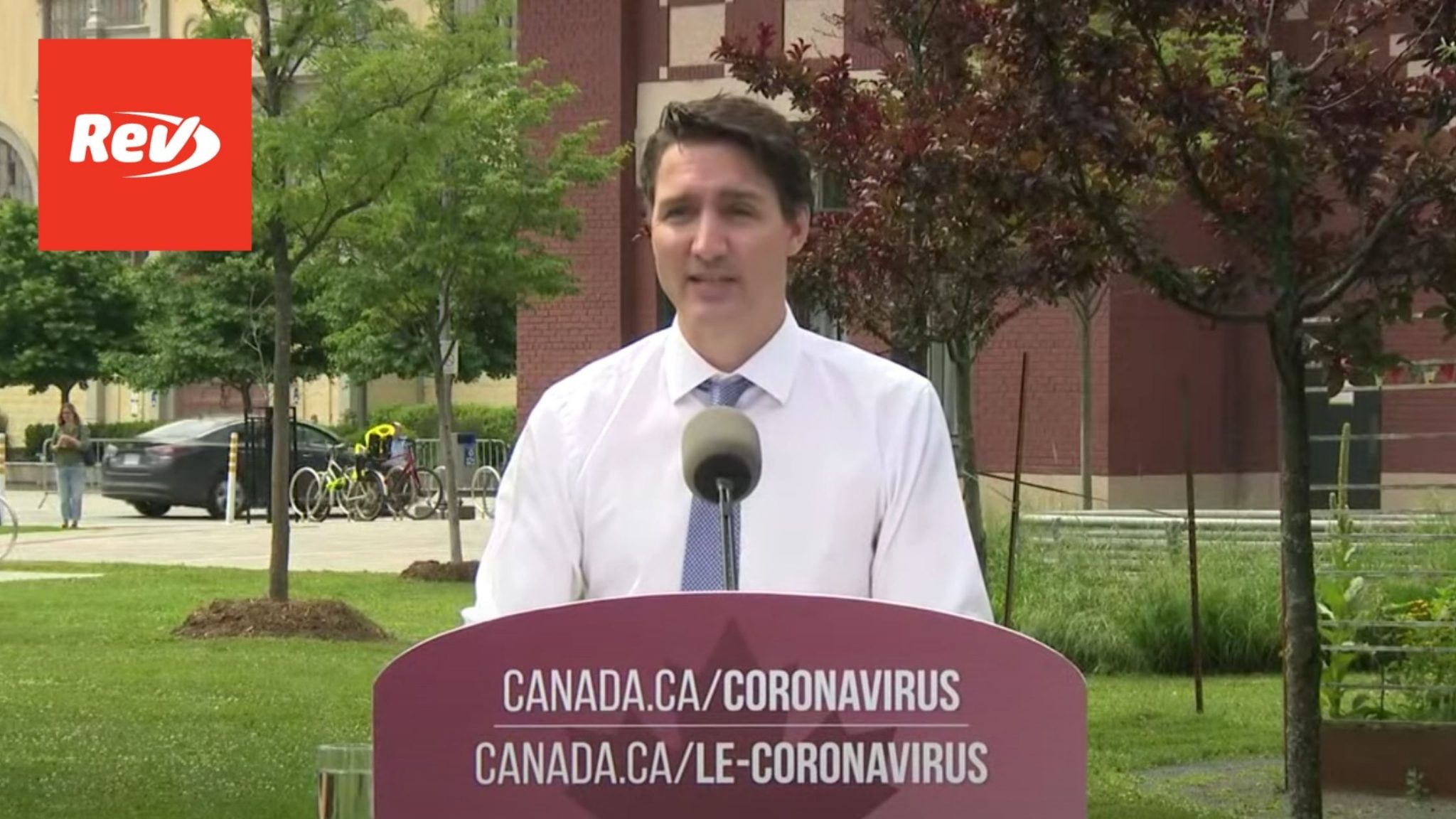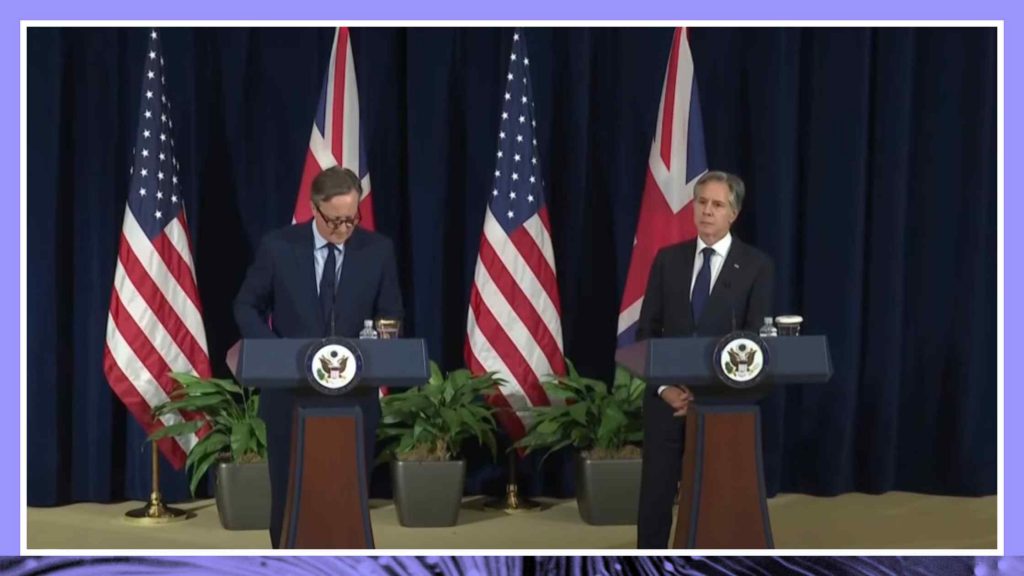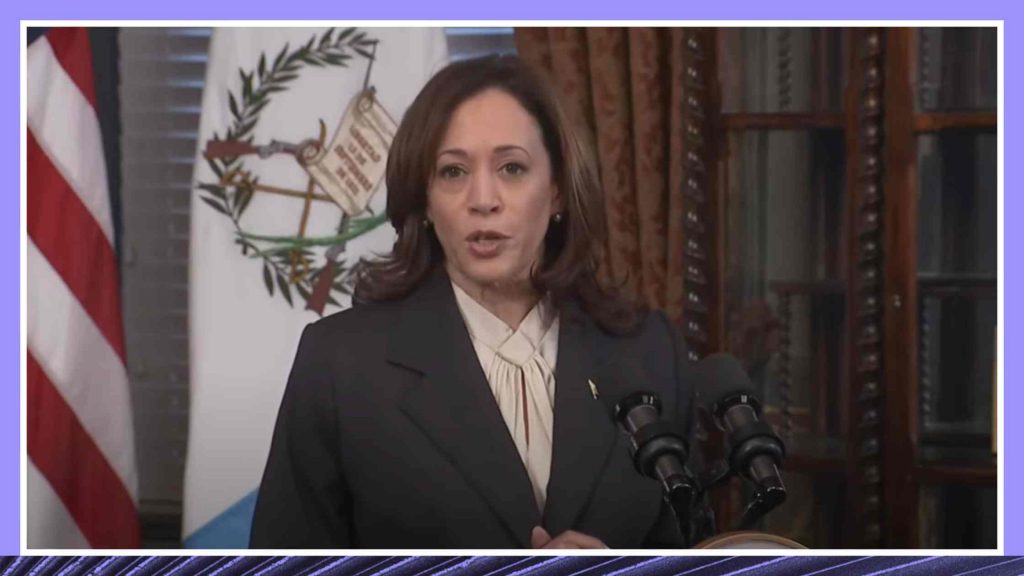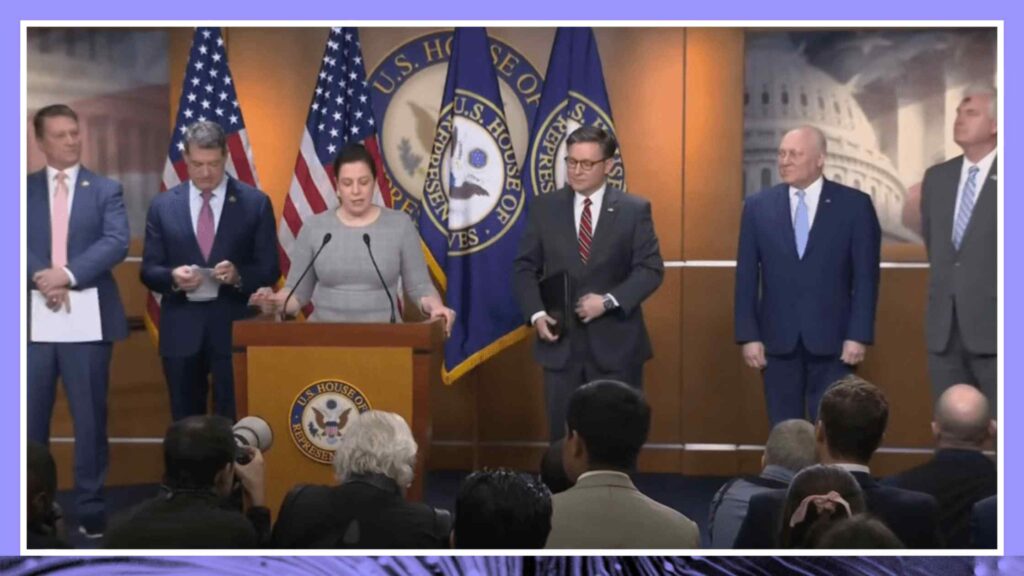Jul 2, 2021
Justin Trudeau Canada Heat Wave Press Conference Transcript

Canadian Prime Minister Justin Trudeau held a press conference on July 2, 2021 to address the heat wave and record high temperatures. Read the transcript of the speech briefing here.
Transcribe Your Own Content
Try Rev and save time transcribing, captioning, and subtitling.
Justin Trudeau: (00:01)
It’s great to be here at [inaudible 00:00:03]. Normally the folks might be here to see the Redblacks play, or to shop at the farmer’s market on Sunday morning. But right now, there’s another great reason for people to come by, and that’s to get their vaccine. A few minutes ago, Mayor Watson and I stopped in at the clinic, even under the masks you could see the smiles all around. So I want to say thank you to everyone, not just here, but across the country who are doing their part by getting vaccinated, and also a huge shout out to the nurses, doctors, volunteers, and staff who are doing such amazing work at getting doses into arms. [French 00:00:43]
Justin Trudeau: (00:42)
We’re on the right track to end this pandemic in Canada. That said, we’re not quite out of the woods yet. Let’s take a look at what’s going on in Yukon. Despite being at over 86% of eligible people with a first dose and over 76% second dose fully vaccinated, they’re facing their biggest spike in cases right now since the pandemic began. This is a reminder that we all have to keep being careful and get as many people vaccinated as soon as possible. Minister LeBlanc has spoken with Premier Silver, and we’re working with the territory on whatever we can do to help. [French 00:02:50]
Justin Trudeau: (02:49)
I know we’re all thinking of British Colombians right now in Lytton where wildfires have devastated the town and across the province with the extreme heat wave. Yesterday, I talked to both Premier Horgan and acting Chief Haugen of Lytton First Nation. Later today, I’ll speak with Lytton’s Mayor, Polderman. We are here as a federal government, as partners for whatever support people need, standing with the people of Lytton to rebuild. And we’re continuing to work with the province to keep all British Colombians safe.
Justin Trudeau: (03:49)
Later today, I’ll be convening the Incident Response Group with ministers from my team to address the needs of communities in BC hit by wildfires and extreme weather and to take a look at what we expect might be a very hot, very dry summer with many wildfires. As we do this ministers will of course, stay in close touch with all their provincial colleagues.
Justin Trudeau: (04:15)
On Wednesday, news also came in from BC that more unmarked graves had been found near a former residential school. To everyone and to Ktunaxa Nation and to all survivors, families and indigenous people, we’re here for you. I can’t imagine your grief and your pain. We will work with you day in and day out and whatever you need to heal. On that note, yesterday I had the chance to speak with Phyllis Webstad. Phyllis is the Founder and Executive Director of the Orange Shirt Society, which raises awareness about the legacy of the residential school system. In fact, it was her story as a survivor that started the Orange Shirt initiative. She told me how important it is that all Canadians know what happened at residential schools.
Justin Trudeau: (05:07)
I want to recognize Phyllis’s courage and leadership. People like her right across the country are leading the way forward, are sharing their stories. We must continue to listen. We must acknowledge the truth, and we must stand as partners and allies in building a better future. [French 00:05:30]
Justin Trudeau: (05:29)
There’s still a long way to go, but in the past five years we have made progress. We’ve lifted 108 long-term drinking water advisories, and invested in classrooms for hundreds of communities. Last week, we brought the UN declaration on the rights of indigenous peoples into law, and we’re working with indigenous partners to ensure we meet the declaration’s objectives. And as of last Monday, our new citizenship oath recognizes indigenous rights. We must continue this work because each step forward brings us closer to a better, stronger country for everyone. [French 00:07:49]
Speaker 1: (07:53)
Morning, Mr. Prime Minister. [inaudible 00:07:55] News. Will you be sending in the Army to Lytton? Although, they’ll be funding and support and compensation, what is the federal government doing exactly to help …
Speaker 2: (08:03)
… compensation. What is the federal government doing exactly to help the people in BC?
Justin Trudeau: (08:05)
I have spoken with Premium Horgan yesterday. Our ministers have been talking directly with their partners, whether its… Excuse me.
Speaker 3: (08:17)
Why are you selling out Canada? What are you doing? Hey! Why are you selling us out?
Justin Trudeau: (08:19)
We have to recognize that there are people who are hurting and have been hurting, and that’s exactly why we need to continue to pledge ourselves every day to do better. What we’re going to focus on now is working with British Columbia, working with the chiefs, working with partners on ensuring that we’re there for the communities in Lytton and across the province that are facing difficulty. Minister Sajjan has been in touch with his colleagues out west, Minister Blair has been talking to Minister Farnworth, and I’ve been talking with Premier Horgan. We will continue to engage directly and prepare to be there to support people as necessary as much as possible. That’s part of what the Incident Response Group meeting is going to be on this afternoon, how we can be there to help, and we will continue to be there.
Speaker 3: (09:16)
[inaudible 00:09:16]!
Justin Trudeau: (09:16)
[foreign language 00:09:11].
Speaker 2: (09:45)
We’re now expecting more than 68 million vaccines by the end of July. Will you now commit to moving up the by September timeline and makes sure that everybody who wants a second dose will get one by the end of July?
Justin Trudeau: (09:58)
We know that we are on track to having everyone vaccinated who wants it by the end of summer. With 68 million doses coming in by the end of July, that’s mathematically enough for everyone in Canada to get two doses. But we know, for example, that the spacing between the doses means that people who get their first dose now or a few days ago won’t be eligible until later in the summer for their second dose. And we need to continue to follow the science. But from the beginning, we made a commitment to Canadians that we’d be there to have their backs, we’d be there to support Canadians with vaccines. And we’ve done exactly that. We will continue to be there to support Canadians every step of the way. And quite frankly, the way people are stepping up on getting vaccinated has been extraordinary and inspiring.
Justin Trudeau: (10:51)
I look forward to seeing all Canadians vaccinated as quickly as possible so we can get back to living as normal as possible in a global pandemic lives here in Canada as we work hard to build back our economy and build back so many of the things that have been highlighted as failings or lackings during this pandemic. [foreign language 00:11:15].
Speaker 4: (11:16)
[foreign language 00:11:16].
Justin Trudeau: (11:16)
[foreign language 00:11:16].
Justin Trudeau: (11:16)
I’m going to be speaking with my ministers this afternoon. We’ve continue to engage with Premier Horgan and community leaders in and around Lytton. We’re going to be there to support people getting through this incredibly difficult time of loss, of devastation. We’re going to be there to help rebuild. We’re going to be there as partners. And I will look at when and whether the time is right to go and see them.
Speaker 4: (13:13)
[foreign language 00:13:13].
Justin Trudeau: (13:20)
[foreign language 00:13:20]. I think obviously today our thoughts are mostly with families that are grieving, that are facing terrible loss. But, of course, we also have to reflect on the fact that extreme weather events are getting more frequent and climate change has a significant role to play in that. We need to continue to commit ourselves every day to reducing our emissions, to showing global leadership on climate change as we have by putting a price on pollution right across the country. There’s going to be much work we need to do both on fighting climate change and on protecting people as we adapt and mitigate the impacts of climate change on our communities. That’s why in terms of investments in infrastructure, we’ve made billions of dollars of investments in flood mitigation, in adaptation measures to support communities facing a reality of a changing climate.
Ashley Burke: (15:06)
Good morning, Prime Minister, Ashley Burke, CBC News. After the military’s Acting Chief of Defense Staff decided to allow the head of the Navy to stay on in his role after that controversial golf game with a former top soldier under investigation, we’d like to know, do you still have full confidence in Lieutenant-General Wayne Eyre to lead the military out of the sexual misconduct crisis? Yes or no, do you have full confidence?
Justin Trudeau: (15:29)
I have confidence in the Acting Chief of Defense Staff. I know that there is an awful lot of work for the senior leadership in the military to do to regain the trust of Canadians, to regain the trust of women and men who serve in our armed forces. They deserve to be in a work environment that supports them, that is there with resources when unacceptable actions happen, but also in an environment that is transforming its culture from one that-
Justin Trudeau: (16:02)
… that is transforming its culture from one that tolerates misogyny and discrimination to being one that is worthy of the extraordinary women and men who step up and choose to serve their country. There is much work still to do, and we will continue doing that work together.
Ashley Burke: (16:18)
And Alberta this week announced that it’s going to be doubling its funding to help protect churches from vandalism and violence. But the Federal Security Infrastructure Program stopped taking applications last November.
Ashley Burke: (16:28)
I know that there is new funding in the budget. So when will the program start taking applications again? And if I may, as a Catholic, what’s your reaction that houses of your faith are being targeted for the church’s role in the residential school system?
Justin Trudeau: (16:42)
As you know, actually, we have put in place a security infrastructure program that partners with places of worship to be able to put in cameras and security systems to keep those institutions safe from what is unfortunately a rise of intolerance and racism and hatred that we’re seeing across the country. And certainly we will continue to roll out those funds in partnership with community centers, religious institutions, and others that need that protection.
Justin Trudeau: (17:13)
As I’ve also said, it is unacceptable and wrong that acts of vandalism and arson are being seen across the country, including against Catholic churches.
Justin Trudeau: (17:28)
One of my reflections is I understand the anger that’s out there against the federal government, against institutions like the Catholic church. It is real and it is fully understandable given the shameful history that we’re all becoming more and more aware of and engaging ourselves to do better as Canadians. But I can’t help but think that burning down churches is actually depriving people who are in need of grieving and healing and mourning from places where they can actually grieve and reflect and look for support.
Justin Trudeau: (18:10)
We shouldn’t be lashing out at buildings that can provide solace to some of our fellow citizens. But we should be every day committing ourselves each and every one of us to the hard work we need to do to actually rebuild a path forward that reflects the terrible intergenerational trauma and present day realities of suffering that we are all collectively responsible for.
Justin Trudeau: (18:42)
[French 00:18:42].
Mike Le Couteur: (20:12)
Prime Minister, Mike Le Couteur with Global National. I’ll ask you to answer in English and in French. Picking up on what you’re talking about with walking that road to reconciliation. Yesterday, at a number of demonstrations, you could hear the anger and the frustration from indigenous communities. A lot of it was pointed at you and your government, and they are saying that you have not done enough to mend the relationship with those communities.
Mike Le Couteur: (20:35)
Regardless of what you listed earlier today with your accomplishments, they still fall short of campaign promises. So how much responsibility do you personally take for the anger that is being felt in indigenous communities now.
Justin Trudeau: (20:49)
Oh, I think that the anger, as you say, is real. People have gone decades and even generations living with intergenerational trauma. With outcomes and institutional racism that has created extreme difficulties for indigenous peoples across this country that are also the legacy of residential schools. We all have a responsibility to go, and I certainly wish we could have finished with reconciliation in five or six years.
Justin Trudeau: (21:26)
And certainly as you point out, we have done an awful lot as a government to set down that path of reconciliation. But there is an incredible amount more to do and it has to be done in partnership and it has to be done first by listening and understanding the anger and the disappointment.
Justin Trudeau: (21:45)
Even as I was speaking with people who chose to wear red and white yesterday, instead of orange, they were reflecting on how their fellow citizens are hurting, how we need to respect and understand that not everyone felt like celebrating yesterday. Celebrating was the last thing on the minds of many, many people in this country for whom we need to do better and we need to approach the work of building this country back and better together. So we all have a role to play. We all have responsibilities, and that’s the work that we need to do.
Justin Trudeau: (22:29)
[French 00:22:29].
Justin Trudeau: (24:02)
[foreign language 00:24:02].
Mike Le Couteur: (24:08)
For follow-up, I wanted to come back on the military misconduct question, and also ask you to repeat in French, if you don’t mind. When military ombudsman Gregory Lick raised serious concerns about the military structure, you said that changes were coming. We just got word that the US is announcing specific action on the prosecution of sexual assault in their military, removing it from the chain of command. So giving them Madame Arbour’s final report could take well over a year. Are you committed to releasing a plan to create an independent reporting structure this summer?
Justin Trudeau: (24:39)
It’s important to highlight that yes, we have asked Justice Louise Arbour to lean in on what it is that we need to do as a country to ensure that the culture in our military is transformed, that the measures in place make changes, but Madame Arbour and I both absolutely agree that we can’t wait a year for that final report. And that’s why she will be offering up suggestions and recommendations as we move forward, as soon as they come forward on things that we can do to make sure that we are putting in end to the culture that accepts and tolerates misogyny and discrimination within armed forces, because the women and men who serve in our armed forces deserve much better than that. [foreign language 00:26:06].
Stephanie: (26:16)
Hi, Prime Minister, Stephanie Taylor with the Canadian Press. And if you could answer in both French and English, that would be appreciated. When quarantine rules lift or change on Monday for fully-vaccinated Canadians, is there any concern on your part that that could lead to a large number of people trying to come into Canada who aren’t actually eligible? And how will the CVSA be able to handle this influx?
Justin Trudeau: (26:40)
I think every country establishes rules around who can come into their country or not, and we have well-established systems in place that look at passports and look at visas. That is not necessarily a concern, because we have extraordinarily capable people at the borders to enforce those issues. I think it’s really important that we are moving forward on allowing people who are currently allowed to come into Canada under the strict travel restrictions we’ve had in place for over a year to be able to do so, and not have to quarantine any more because they’re double vaccinated. For others, we will be looking at how this works before we open up to next steps, but we will continue to put first and foremost the safety and security of Canadians at the top of everything we do, because that’s what Canadians expect. [foreign language 00:27:39].
Stephanie: (27:39)
Thank you. Canadians still don’t know when we might see some movement and opening with the US border. I’m wondering and hoping you can provide an update to Canadians about how talks with the United States are going on that front, and specifically given how more and more Canadians are getting vaccinated, hospitalization rates appear to be dropping, and hopefully will continue that way. At this point, do you anticipate having to keep the border with the US closed to non-essential travel past July 21st?
Justin Trudeau: (29:06)
First of all, as you well know, we continue to work very closely with the United States to make sure that we’re aligned in our approach and keeping both our citizens safe while ensuring economic opportunities and trade continues uninterrupted as it has over the past year and a half, despite the border of being closed to 90% of all travel. Canadians, as of Monday, will be able to start traveling again if they’re fully vaccinated, and not have to quarantine when they come home. That is a significant step, and Canadians are going to benefit from that. When we start reopening so Americans and others who are fully vaccinated come into Canada will depend on how this goes, on the data we collect on how we’re able to keep Canadians safe, even as we make adjustments to the rules, and as travel volumes inevitably increase. Every step of the way, we’re going to make sure we’re keeping Canadians safe.
Justin Trudeau: (30:10)
I know people are impatient to suddenly get back to normal, but we’re not there yet. As I pointed out, the Yukon is up in the mid-70s in terms of full vaccination, and they are right now facing the largest spike in new cases that they’ve had since the beginning of the pandemic, certainly mostly amongst unvaccinated or partially-vaccinated people. And that’s a reminder that even as those numbers come up, as so many people are vaccinated, there is still work to be done, and we still have to be careful. And mostly, we have to get up over 75% fully vaccinated, up into the 80s fully vaccinated perhaps, according to Dr. Tam, if we’re going to be safe. And we’re seeing Canadians come out in record numbers. We’re leading the world in terms of vaccine uptake. That’s great news, and it just needs to continue so that we can be safe. And while it is continuing, our government’s going to keep doing the things necessary to keep us from sliding back into another wave of this virus. [foreign language 00:31:28].
Transcribe Your Own Content
Try Rev and save time transcribing, captioning, and subtitling.






